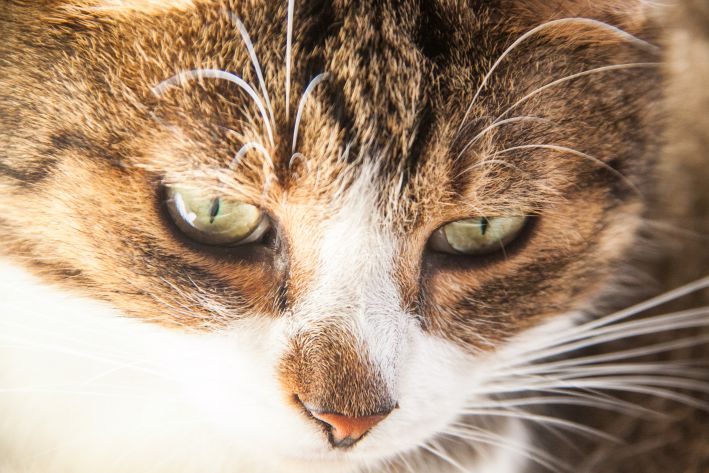Why Does a Cat Walk in Circles: 10 Reasons That Will Surprise You
Every cat owner has at least once observed their pet walking in circles.
This behavior may seem strange and even funny, but what is really behind these seemingly aimless circles?
Boredom
Boredom is one reason why cats sometimes pace. If they are not getting enough physical or mental stimulation, they may pace in circles, trying to release some energy. Bored cats are also prone to destructive behavior, such as scratching furniture.
Set aside some time each day to play with your cat and give her some interactive toys when she's in a good mood.
Excitement
If your cat is pacing on a windowsill, it may be attracted to something on the other side, such as a bird. The pacing may be a result of frustration at not being able to reach what attracted its attention. You may also hear your cat meowing excitedly.

Stress or anxiety
Cats that are stressed or anxious sometimes pace in circles, perhaps in an attempt to release pent-up energy or calm down. They can become stressed over small things. Even changing the location of food bowls or using a different type of litter can upset some cats.
A stressful environment is another reason, such as if the house is noisy or if children are pestering the cat. Try to figure out what might be causing the cat's stress and take steps to make its life calmer. If you are concerned about the cat's condition, seek advice from a veterinarian.
Poisoning
Stimulation is one of the signs of toxicosis, as it can affect the neurological system.
Other signs that your cat has ingested something toxic include drooling, twitching, trouble breathing, swelling of the skin, vomiting, diarrhea, changes in eating, drinking, or toilet habits, lethargy, depression, shock, and fainting. Contact your veterinarian immediately if you suspect poisoning.
A variety of household items are toxic to cats, including antifreeze, insecticides, essential oils, weed killers, some flowers and plants, and certain human foods. Flea and tick repellents can also cause poisoning if ingested.
Cognitive dysfunction
Also known as “feline dementia,” cognitive dysfunction affects the neurological system, causing cats to have memory problems, become less aware overall, and become less responsive to stimuli.
The cat may become disoriented, confused and anxious, causing it to walk in circles.
Other signs of cognitive dementia in cats include excessive licking, irritability, forgetting rules they previously had no problem following, incontinence, loss of appetite, frequent meowing, and changes in sleep patterns. This condition is more common in older cats.
Behavior during pregnancy and estrus
Cats may pace in circles when they are in heat, and they may also be more vocal, clingy, or irritable than usual. A cat may sometimes pace in circles when she is about to give birth, as she becomes restless at this stage.
Liver disease
Liver disease can also affect the brain (this is known as “hepatic encephalopathy”). If this happens, the cat may walk in circles and show other signs such as disorientation, confusion after eating, bumping into walls, lethargy, aimless wandering, loss of appetite, and meowing. Cats may also become aggressive, drool, and experience vomiting and diarrhea.
Endocrine diseases
Hyperthyroidism is an example of an endocrine disorder that can cause anxiety in cats. It is a condition in which too much thyroxine (a thyroid hormone) is produced.
If your cat has this condition, they may also exhibit other signs such as weight loss, increased appetite and thirst, frequent urination, vomiting, diarrhea, rapid breathing, hyperactivity, and a general unhealthy appearance with unkempt fur.
Tumors
A tumor in the brain or another part of the body that has metastasized to the brain may cause a cat to walk in circles due to its effects. Disorientation, seizures, bumping into objects, ataxia, meowing, and general changes in behavior are other signs of tumors affecting the brain.
Pain and injuries
If a cat has suffered a head injury, its nervous system may be affected, and one of the consequences may be walking in circles. Pain can also cause this condition because it prevents the cat from relaxing and causes discomfort. Cats in pain sometimes become restless.
Previously, we wrote about what to do if a hamster prevents you from sleeping at night.
